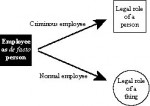In this Part III, we consider the conceptual misunderstanding of what Tomasi calls “productive property” which allows the basic capitalism-versus-socialism misframing of the debate about the so-called “capitalist” system.
Listen Libertarians! Part II
In Part I of this series, we saw how Tomasi used the standard consent-versus-coercion misframing of the basic issues in his new book: Free Market Fairness. In this Part II, we consider the misframing involved in the treatment of property rights.
Listen Libertarians! Part I
This is Part I of a five part review of John Tomasi’s Hayek-Rawls remix in his new book: Free Market Fairness.
Free Cities: What could be wrong with that?
This post is an update of a previous post on The Charter Cities Debate and Democratic Theory. A new twist on Paul Romer’s idea of charter cities has come to my attention. It is promoted under the name of “free cities.” The home base seems to be the Free Cities Institute headquartered at the Francisco Marroquin University, a right-wing university in Guatemala.
Fukuyama and Dahrendorf on Hayek
Frank Fukuyama’s recent review of Hayek’s Constitution of Liberty in the NYTimes has raised a ruckus in Hayekian circles. I review an older critique of Hayek by Ralf Dahrendorf and then lament the absence of the Hayekians in the great debate of the 1990s about socially engineering the transition from socialism to capitalism. Apparently the Hayekian strictures against utopian social engineering only applied to the transition in the opposite direction.
Inalienable Rights: Part III A Litmus Test for Liberalism
Surely it is not too much to ask a modern liberal theory of justice that it provide a coherent account of why some contracts, e.g., self-sale contract, should be deemed invalid and why the rights such contracts would legally alienate are inalienable. In that sense, the theory of inalienable rights provides a historical litmus test for liberalism.
The Charter Cities Debate and Democratic Theory
The charter cities debate is great for helping to bring out these non-democratic aspects of classical liberalism and conventional economic theory not to mention right-wing libertarianism.
Inalienable Rights: Part II Intellectual History
Where did the ideas behind the inalienable rights theory emerge in the history of thought?
Inalienable Rights: Part I The Basic Argument
What is the inalienable rights theory that descends from the Reformation through the Enlightenment and that answers the classical apologies for slavery and autocracy based on implicit or explicit voluntary contracts?
Why was Slavery Wrong? Involuntariness or Treating Persons as Things?
“Involuntariness” is the usual answer.
Indeed, classical liberalism takes the most basic framing of a social question as: “consent or coercion?” In this view, democracy is characterized as government “with the consent of the governed” so slavery and non-democratic government were both condemned for the lack of consent.
This common condemnation of slavery on the basis of involuntariness has caused a large amount of intellectual history to just go “down the memory hole.” Those who routinely condemn involuntary slavery have either forgotten or never knew that from Antiquity down almost to the present there have always been those pro-slavery writers who: (1) presented a defense of slavery based on consent or contract, and (2) interpreted much of historical slavery as being based on implicit or explicit contracts.
My focus here is not on (2), the empirical question of whether or not any historical slavery could be interpreted as being voluntary, but (1), the fact of intellectual history that so many classical authorities defended slavery if based on consent.

